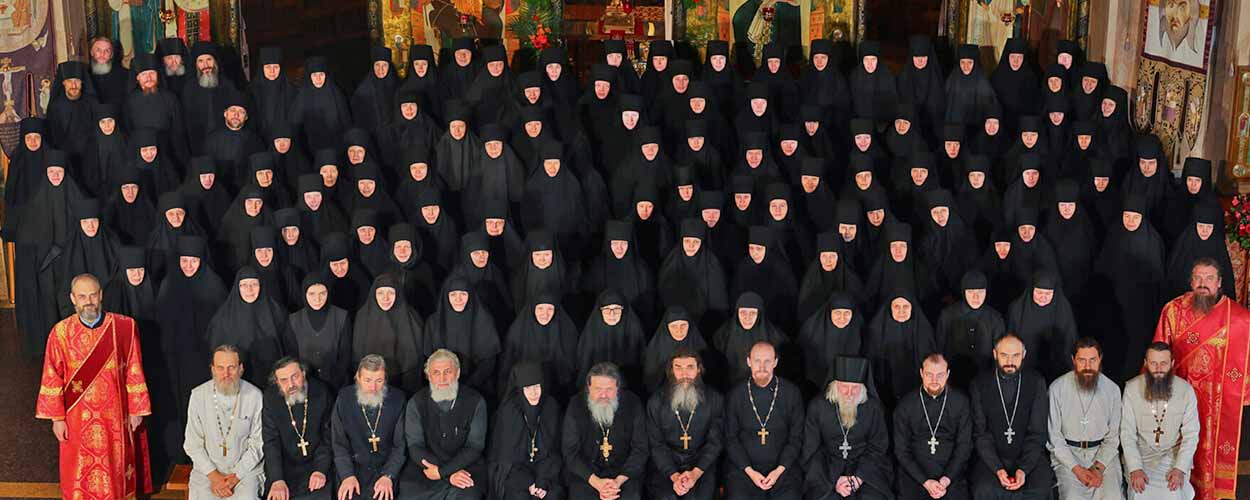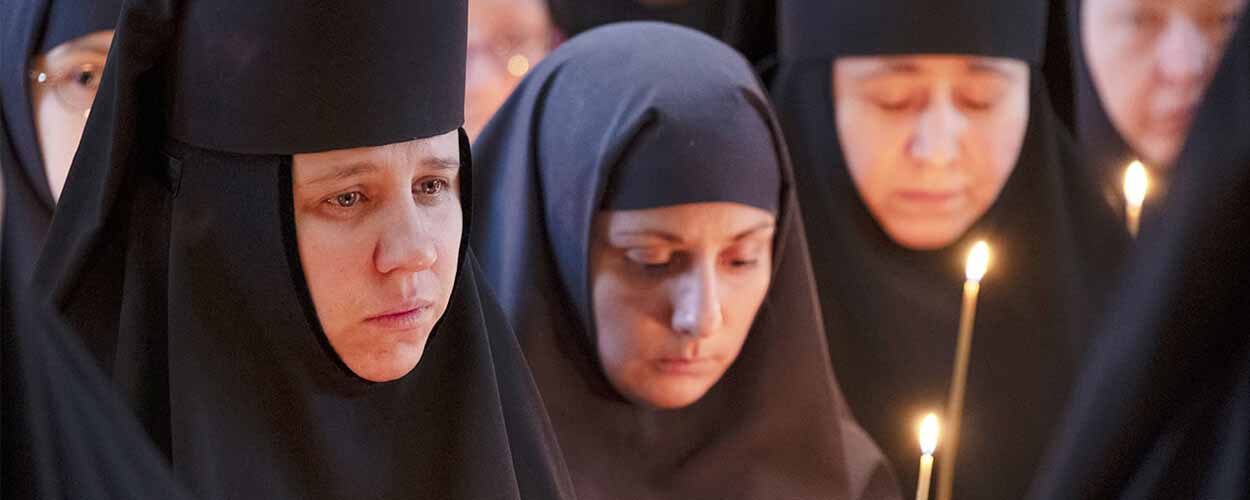
Many people know about the difficulties of monastic life, but only a few know that it is the highest, the purest, the most beautiful, and even the lightest (think - inexplicably attractive, sweetest, gratifying, bright, shining with eternal joy). However, the truth is on the side of the few, not the many.
Venerable Anatoly (Zertsalov)
Coming to the Convent is a conscious choice for every sister.
They accept monasticism to recognize their sins, repent of them and devote their lives to serving God. They do not join become hermits who always look down and never talk to anyone. As father John (Krestyankin) wrote, today's monastics should not be living as recluses when so many people need their help to strengthen their spirits.
Saint Elisabeth Convent grew up amid the hospitals with large numbers of patients in need of love and care. We cannot imagine ourselves in isolation from the people. The people are reaching out to us, so we must embrace them. By being of service to others, we also receive the grace of God. Our social ministry is an expression of our love and compassion for our neighbour. In our works, we are mindful of the old saying: “Worry not about a roaring storm, but about a tear of a needy person”.
Our focus is on child and adult patients with mental disabilities who require permanent care and attention; hospital patients, persons suffering from alcohol and drug dependency and their families, and the homeless and vulnerable.

The life of a monastic sister is about obedience. Obedience means voluntary renunciation of one's pride — a bloodless sacrifice that a sister brings to God's altar. It is grounded in trust towards another sister, the abbess, and the spiritual father. It is not about rigid discipline but rather about one's eagerness to comply with God's will in all aspects of life.
Every sister will have her moments of difficulty. Our weekly monastic meetings are a great source of help and encouragement for all of them. They create a sense of community and a unity of purpose, out of which salvation is born. They are our way to resolve our disputes, moods or grievances like members of a family. This is essential if we want to combat hypocrisy, resistance to change and harmful routines within our ranks. To us, they are like gathering around the Cup.
The Sisters have left behind their homes, their families, material wealth and honours. Instead, they have acquired the love of God as the sole purpose of monastic life. Cutting off their own will and struggling with sinful protest and depression, the sisters go through changes until finally a new personality is born, a follower of Christ, a nun.
The Church calls monasticism the angelic life. From the times of the Apostles to the present day, millions have taken this route, by giving up their possessions and estate, renouncing the ways of the world and following Christ.
Nun Julia Baran: “As I said to my mother, I wish I had joined the Convent after school. But I know If I had joined young, I probably would not have stayed. God let me join at 37. He is leading me, and I am following.”